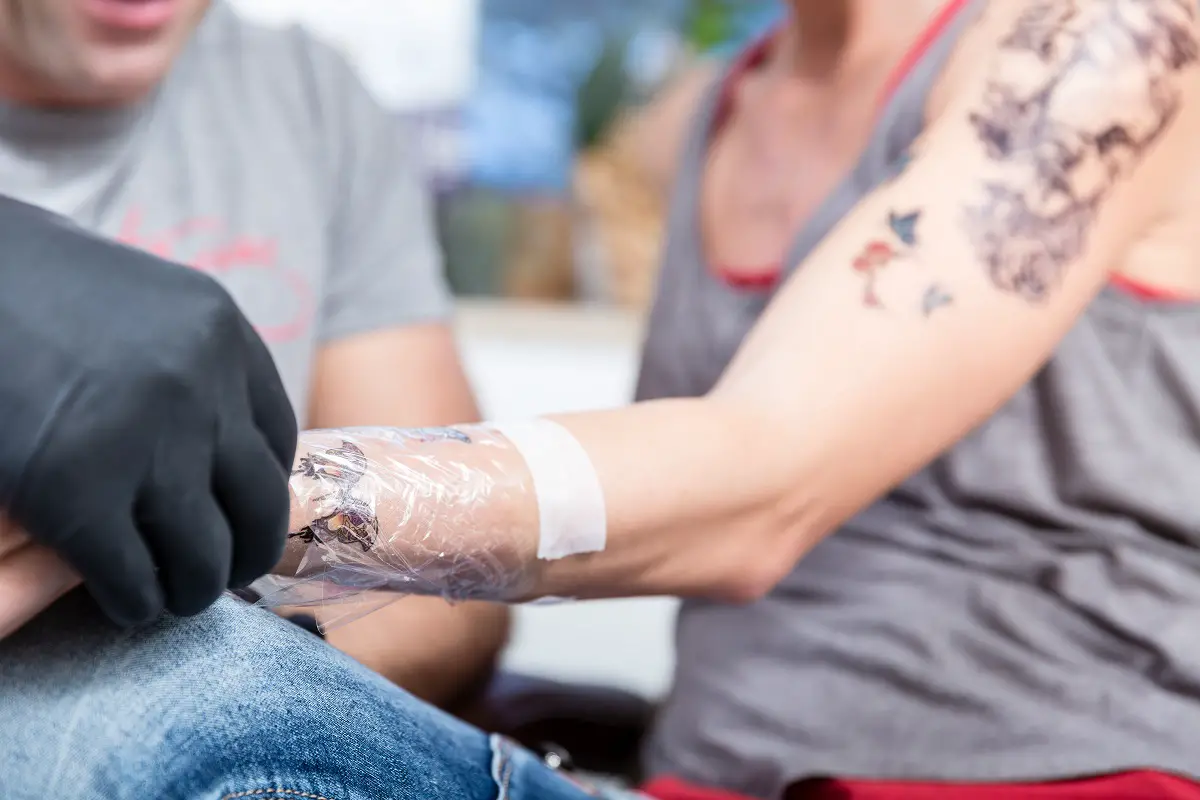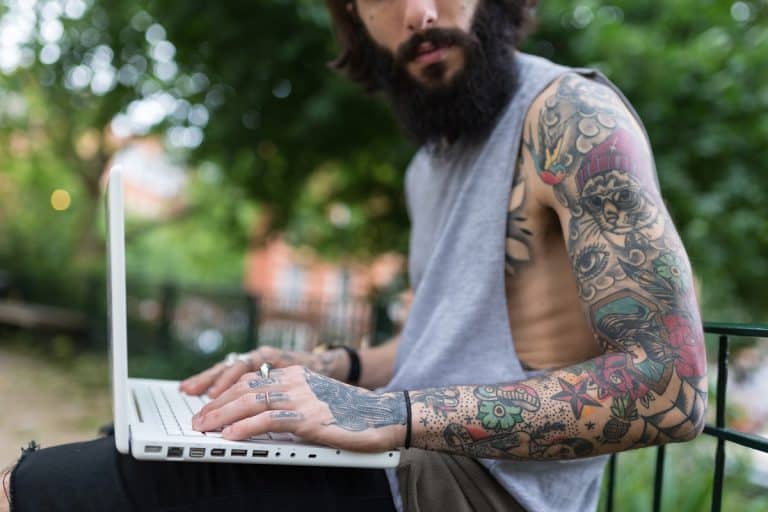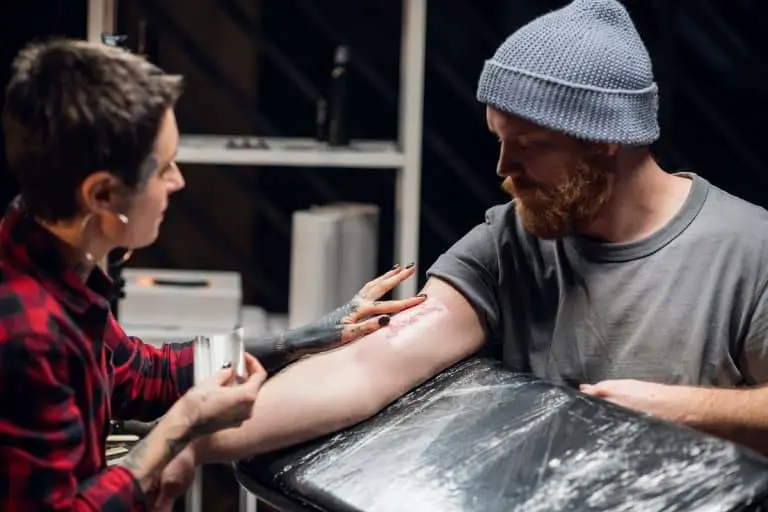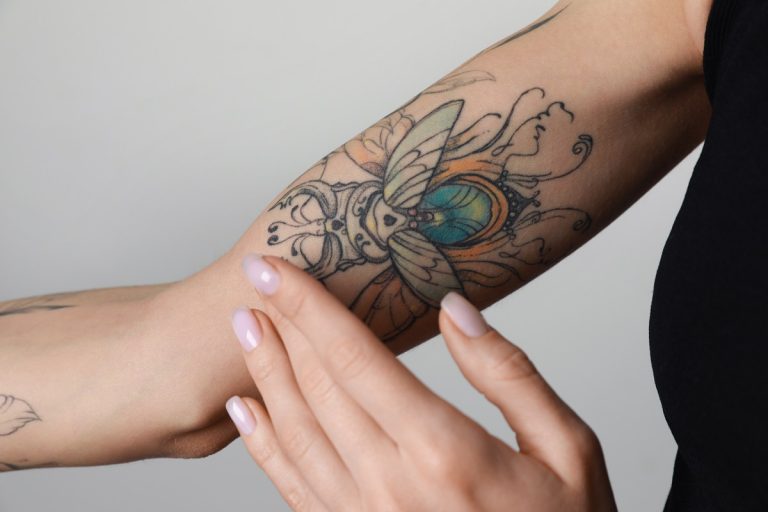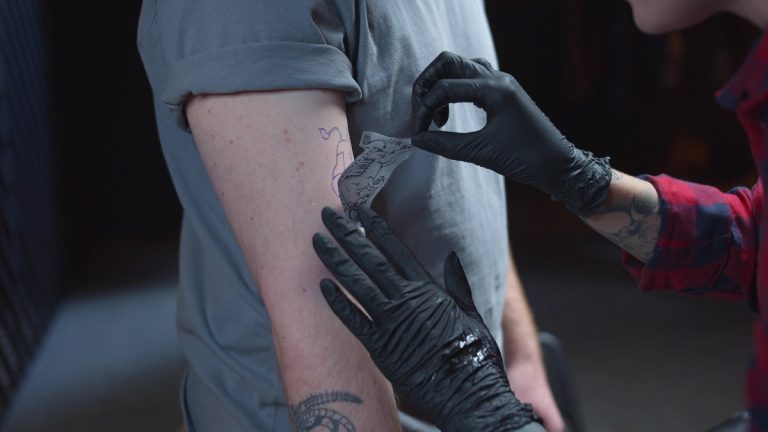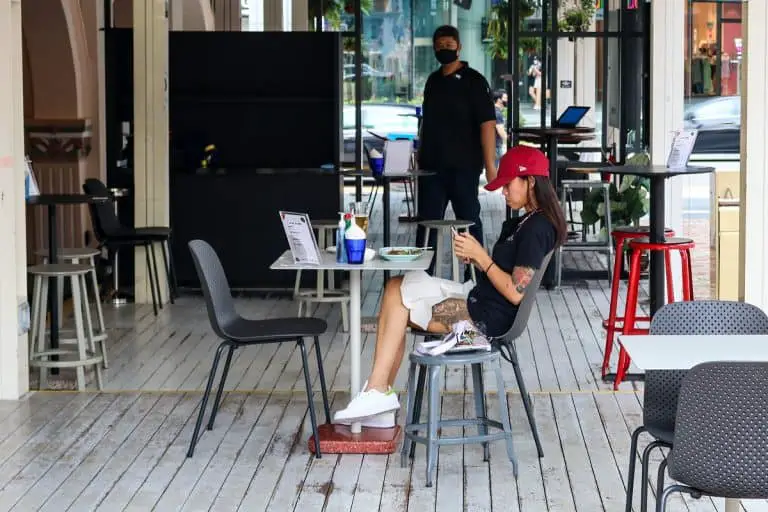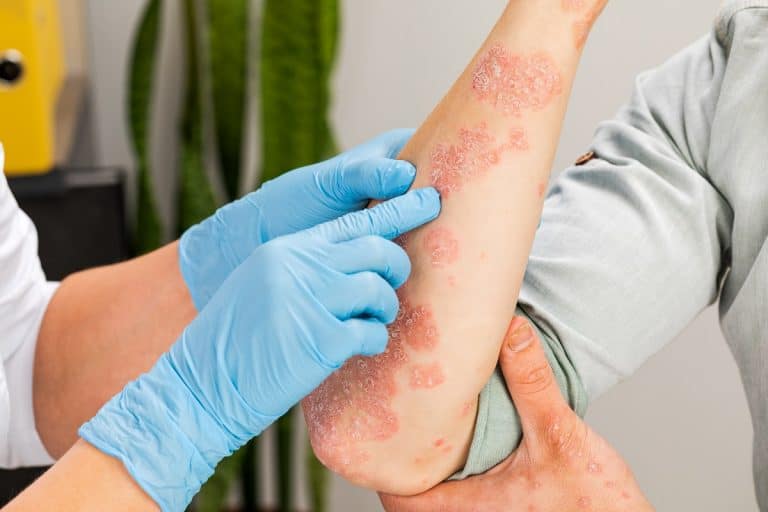What Happens If You Scratch a Itchy Tattoo?
Getting a new tattoo is always exciting, especially if it’s your first tattoo. You just can’t wait for it to heal so you can show it off. However, what many seem to forget amongst all the excitement is that the healing process is a pretty demanding task.
You will go through super uncomfortable stages of the tattoo leaking and oozing, as well as scabbing and itching. Oy of all the things, scabbing and itching seem to be the most difficult to deal with since they awake this urge in us to pick and scratch the tattoo.
Chances are, if you’re reading this, that your new tattoo is at the stage where it’s forming scabs and it’s starting to itch. Before you do anything rash, it is always a good idea to first educate yourself and find reliable answers to the things that are bothering you. So, in this case, the question is; can I scratch my new, itchy tattoo?
To find out, let’s keep on reading. We’ve provided a detailed insight into the itching and scratching of new tattoos, so let’s get started!
Itchy Tattoo: Why It Happens and How to Find Relief
Why Are New Tattoos Itchy?
Before we get into the whole scratch-the-itch ordeal, we need to understand why the itchiness even occurs.
Let’s simply start by saying that a new, fresh tattoo is considered to be a wound. And, it technically is one. Why? Well, your skin just underwent consequent needle ‘stabbing’ at a rate of up to 3000 times per minute, which obviously creates numerous tiny wholes in the skin. Together, all these whole create a big wound that your body focuses on healing right away.
In the beginning, the tattoo is still fresh, which means it may be oozing, leaking, and bleeding for the next 24 hours. That is your body trying to get rid of the ‘foreign objects’, aka the tattoo ink. Once everything has calmed down, the tattoo will start to go through different healing stages, which include the closing of the wound, forming a new protective barrier, and finally healing completely, which is often recognized by the mattifying of the tattoo.
During the halfway period of healing, the tattooed skin will start creating a protective barrier, which is known as the process of scabbing. Now, this doesn’t have to occur, but some scabbing generally appear in most cases. This is a clear sign that the tattoo is healing, so there is no reason to panic. However, as the scabs form and the skin dries up, it will start getting itchy, which is, again, supernormal.
However, this kind of itchiness should never be addressed by scratching. Remember, under the scabbing, the skin is still ‘wounded’ and trying to heal. By removing the protective barrier, or the scabs, you’re exposing the sensitive skin and potentially introducing bacteria via your nails.
Read More: Why Is My Tattoo Raised and Itchy?
Can I Scratch an Itchy Tattoo? What Happens If You Scratch a Itchy Tattoo?
Well, technically, you can scratch it. But, should you do it? Most definitely NOT!
As we mentioned in the previous paragraphs, scratching a new tattoo can lead to the following issues;
- Exposing the sensitive tattooed skin (no protective barrier)
- Undermining the healing process (the skin has to create a new protective barrier all over again)
- Prolonged healing process
- Introduction of microorganisms, bacteria, and germs to the healing tattoo via nails
- Higher chance of inflammation and infection development
- Potential messing up of the tattoo (should you develop an infection)
- The potential destruction of ink placement
- Potential oozing and leaking in the area that you scratched
- The potential of having to touch up the tattoo once it heals, will increase the overall cost of the tattoo, quite significantly
So, do these risks sound worthy of that one scratch you’re craving so much? Surely not! You just got tattooed, which means, that ink is meant to sta yin your body for a lifetime. So, messing up something that’s meant to be there with you forever isn’t really a good idea.
When it comes to fresh, healing tattoos, infections can happen really easily. That is why tattoo artists always emphasize the importance of a proper aftercare routine. The routine most definitely includes things like not scratching, picking, or peeling the tattoo.
How To Handle an Itchy Tattoo?
So, now that you know that scratching an itchy tattoo is a big no-no, you’re probably asking yourself; well, then how do I deal with the itchiness?
Before we get into the actual recommendations, we want to emphasize how important it is to stay calm and resist scratching. Try to distract yourself from the scratch. Now, if that seems impossible for you, here are some tips and tricks you can utilize to successfully deal with the annoying itchiness;
- Try patting your tattoo, gently; this might help reduce the intensity of the itchiness.
- Some people like to slap the tattoo; this seems to be rather helpful, but you need to be extremely gentle. Also, do not slap the tattoo with the fingers, but rather with an open palm.
- If slapping the tattooed area seems a bit excessive, you can always just hold a flat palm over the itchy area. You don’t have to move it around or do anything of that sort; just keep it still until the itchiness goes away.
- Once the scabs have formed, it is safe to apply some aftercare ointment. This can help deal with skin dryness and reduce itching. Be careful when you apply ointment though; only apply a thin layer of ointment is recommended when it comes to healing tattoos.
- Taking a shower is supposedly super effective against s; a hot shower will dry out your skin further, while a cold shower might not do much for you. Also, do not wash the tattoo directly; extra moisture can mess up the healing process, so try to keep the tattoo as dry as possible.
- Use a thick material to cover the tattoo. Then, gently go over the material with your hand, as if you’re petting the area. This will help you scratch the itch without actually scratching anything, or potentially infecting your tattoo.
How Can I Prevent the Itchiness?
There are a couple of things you can utilize to actually prevent intense itching or itchiness of the tattoo overall. First of all, it is essential to keep the tattoo clean but not overdo it. Once the scabs are formed, you can start cleaning your tattoo using lukewarm water and antibacterial soap. After you’re done, it is essential to tap dry it using a paper towel or a regular, cotton towel. Then, apply the recommended ointment in a very thin layer. This should be more than enough to keep the tattoo itchy-free for a while.
If the itchiness increases, that is a sign that your skin is super dry and requires better hydration. So, feel free to apply the ointment once a day for a few days, or until the scabs fall off on their own. Also, make sure to drink enough water and eat fruits and veggies to hydrate your skin from the inside out as well.
When Can I Actually Scratch the Tattoo?
It is essential NOT to scratch your tattoo until it is fully healed. It may take anywhere between 4 to 8 weeks for the tattoo to heal fully, sometimes an even longer period as well. This is because the healing process is determined by different factors, like the size of the tattoo, the placement on the body, or even your own body’s immune system and how well you’re taking care of it (as well as the tattoo).
When the tattoo is fully healed, meaning the ink is mattified and there are no scabs or tattoo peeling, then you’re free to scratch that itch. Of course, you can’t really go full crazy mode and scratch your newly healed tattoo as you’ve never done before. You still have to be gentle and avoid using nails. Just because the tattoo is healed doesn’t mean the skin is not sensitive and prone to irritation.
What If I Accidentally Scratched the Tattoo?
It can happen that you scratch the tattoo accidentally, involuntarily; it is actually pretty common. People tend to scratch their tattoos in their sleep most of the time. So, what should you do if this happens to you?
First of all, it is essential to examine the tattoo and see if you’ve removed any of the scabs or peeled off the tattoo. If you see any damage to the tattoo or the skin, as in, removed scabs, bleeding or oozing, redness, and anything similar, make sure to proceed as follows;
- Clean the wound using lukewarm water and antibacterial. Noncomedogenic soap. This will help prevent the spread of the germs you potentially transferred to the tattoo via fingernails, and hopefully prevent infection.
- Apply a thin layer of approved tattoo ointment to promote faster healing and skin hydration. It is essential your hands, fingers, and nails are absolutely clean as you’re dealing with the tattoo.
- Observe your tattoo in the following days; if it continues to heal normally, then there is probably no permanent damage to the tattoo. However, if you notice redness, swelling, increased itchiness, discomfort, continuous oozing and bleeding, and pain, it is essential to see a medical professional. You can also contact your tattoo artist to consult regarding your next steps.
Final Thoughts
And now you know; scratching an itchy tattoo is a no-go. Even though it may be tempting, and the urge may be strong, you need to resist and follow our recommendations regarding dealing with an itchy tattoo. For more information talk to your tattoo artist or your friends who have gone through the same issues. Do whatever you need to do to distract yourself from the itchiness as well; but, never scratch the itch. It is simply not worth it!
- Safe, non-toxic plant-based temporary tattoos made with 100% high-definition printing for a realistic look without the pain
- Easy to apply and remove - just stick for 20 seconds then take off
- Set includes 5 sheets with 17 fun, delicate designs like hearts, cats, smiles, suns, moons, and more
- Waterproof and long-lasting - stays on up to 2 weeks of wear
- Fashionable for women, men, girls and boys
- Place on arm, wrist, neck, leg, finger, waist, foot and more
- Great for parties, birthdays, and showing your unique style

